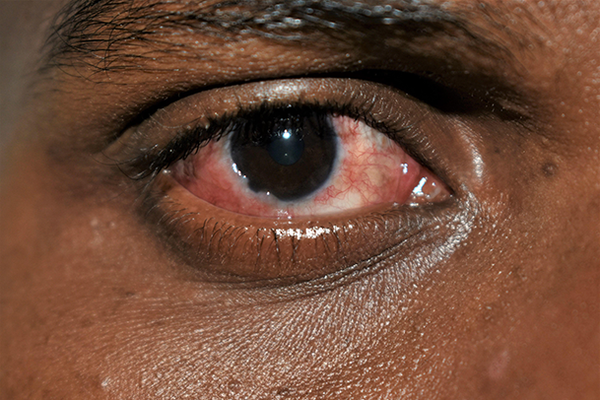Kenya’s coastal residents have been put on high alert, following the outbreak of conjunctivitis, commonly referred to as red eye disease. Health authorities, particularly in Mombasa and Kilifi counties, have been propelled into action to curb the escalating health crisis. The viral eye infection has spread rapidly and affected thousands of people in just a few weeks. It is highly contagious and can be easily transmitted through direct contact, making it difficult to contain.
Conjunctivitis, an inflammation of the eye membrane, has been identified as the cause of redness, swelling, itching, tearing, and possible discharge from the eyes, affecting a significant number of residents in the coastal areas. The highly contagious infection is causing discomfort among school-going children, who are being advised to stay at home until they fully recover.
What Could Possibly be the Cause?
The current situation in Kenya follows a similar outbreak in Tanzania, where an alarming 869 cases were registered within one month, predominantly in the commercial hub, Dar es Salaam. This highlights the need for cross-border collaboration and information sharing to effectively manage the disease.
Health officials are pressing the panic button, urging residents to maintain high standards of cleanliness to control the outbreak. Handwashing is underlined as a key defense mechanism, along with avoidance of sharing personal items and touching the eyes. Read Also: Cape Verde Achieves Malaria-Free Status, Declared by WHO
The outbreak of viral eye infection in coastal Kenya has raised awareness about the importance of personal hygiene and disease prevention. It serves as a reminder that simple actions such as regular hand washing can make a significant difference in preventing the spread of infectious diseases. Residents are also being urged to seek immediate medical attention if they experience any symptoms associated with conjunctivitis, to prevent further complications.

Efforts Underway to Halt the Spread of Conjunctivitis
The spread of the viral eye infection has been attributed to poor hygiene practices and overcrowding in densely populated areas. The disease can be transmitted through direct contact with infected individuals or contaminated objects.
To prevent the further spread of the infection, health officials have advised residents to practice good personal hygiene and avoid sharing personal items. Regular hand washing and covering the nose and mouth when sneezing or coughing can also help reduce the risk of transmission.
The Kenyan coastal counties are working tirelessly to break the chain of this debilitating ailment, and health officials are hopeful that their preventative guidelines will help control the situation and restore health and wellness among their residents. Read Also: Cameroon Rolls out a World-First Malaria Vaccine
In addition, health centers in affected areas have been equipped with necessary medication to treat conjunctivitis. Antibiotic eye drops are being prescribed to ease the discomfort and reduce the risk of complications such as corneal ulcers or vision loss.
Despite efforts to contain the outbreak, there have been concerns about the shortage of medical supplies in some health facilities. This has led to long queues and delays in treatment for affected individuals. The government has been urged to address this issue urgently to ensure all residents have access to proper medical care.
Importance of Early Detection and Treatment
Early detection and treatment play a crucial role in controlling the spread of viral eye infections such as conjunctivitis. If left untreated, the infection can lead to serious complications that may result in permanent vision impairment.
It is important for individuals experiencing symptoms of red eye disease to seek medical attention immediately. This not only helps in early diagnosis and treatment but also helps prevent the infection from spreading to others.
Furthermore, it is essential for individuals with conjunctivitis to follow the prescribed treatment plan and complete the full course of medication. Failure to do so may result in a relapse or antibiotic resistance, making it more difficult to treat the infection.



